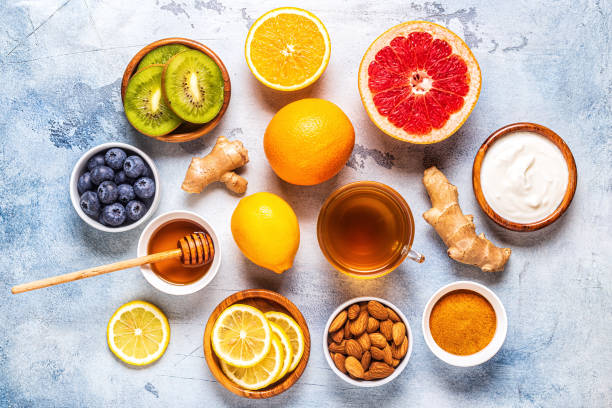
Foods to Avoid in Winter
Share
Winter brings cold weather, shorter days, and the need for warmth and nourishment. While some foods provide comfort and immunity support, others can be counterproductive, compromising your health and energy levels. Understanding which foods to avoid during winter can help you maintain your well-being throughout the season.
Cold beverages are one of the primary food items to reconsider in winter. Iced drinks, including cold sodas and chilled juices, can lower your core body temperature and slow your digestion. This is especially problematic as the body works harder in winter to maintain warmth and energy. Instead, opt for warm beverages like herbal teas, hot lemon water, or soups that promote hydration while keeping your internal temperature stable.
Another category to limit is raw vegetables and salads. While these foods are nutrient-rich, they are harder to digest due to their raw nature. In winter, the digestive system tends to function more slowly, making it less efficient at processing uncooked foods. Instead, lightly steaming or roasting vegetables can make them easier on the stomach while preserving their nutritional value.
Sugary foods, which often abound during the holiday season, should also be consumed sparingly. High sugar intake has been linked to suppressed immune function, which can make you more susceptible to colds and infections. Processed snacks and sugary treats may provide a temporary energy boost but can lead to crashes, leaving you feeling fatigued. Replacing them with naturally sweet alternatives like fruits or honey is a healthier choice.
Fried and greasy foods, while comforting, pose a challenge to winter health. These foods are calorie-dense and can lead to weight gain, which is harder to manage during a season when physical activity often decreases. Additionally, excessive fat consumption can lead to sluggishness and impair digestion. Choosing baked or grilled foods is a better option.
Dairy products, such as milk, cheese, and cream-based dishes, can increase mucus production in some individuals. This can exacerbate respiratory issues, especially if you’re prone to colds or sinus infections. If cutting dairy is not an option, consider consuming it in moderation or choosing alternatives like plant-based milk.
Alcohol consumption should also be approached cautiously in winter. Though it may give a warming sensation initially, alcohol causes blood vessels to dilate, leading to heat loss from the body’s core. This can make you feel colder in the long run and may weaken your immune defenses.
Lastly, processed and packaged foods should be minimized. These products are often high in preservatives, sodium, and unhealthy fats while offering little nutritional value. They can contribute to inflammation and reduced energy levels, making it harder for your body to adapt to winter conditions. Instead, focus on whole foods like seasonal fruits, root vegetables, and hearty soups to provide warmth and nourishment.
By avoiding these foods and making mindful dietary choices, you can enhance your immunity, energy, and overall comfort during the winter months. Prioritizing warm, nutrient-dense foods will keep you healthy and ready to embrace the season.
Get more knowledge about eating healthy, please refer to Mediterranean Vegetarian Cookbook.
